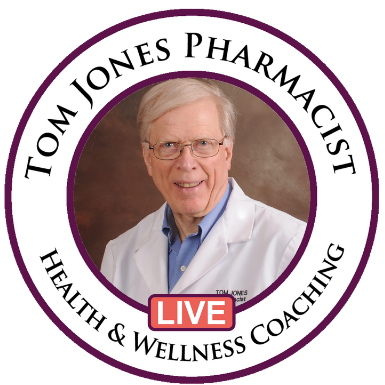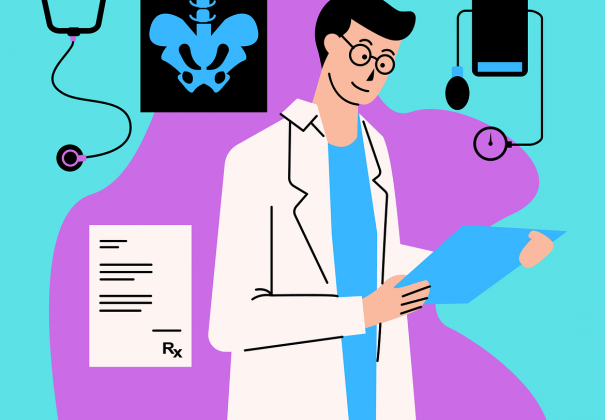You may be surprised to learn that conditions such as rheumatoid arthritis, cardiovascular disease, dementia, diabetes and depression often have one thing in common-a deficiency in omega-3 fatty acids and essential B vitamins including folic acid.
So which came first, the disease or the deficiency? It is not clear whether these diseases contribute to deficiencies or whether insufficient dietary intakes of these essential nutrients lead to the onset and deterioration associated with these diseases.
Statistics confirm that Americans have the lowest intake of essential omega-3 fatty acids of any developed country. DHA, the omega-3 that is present in every cell membrane of the human body and highly concentrated in the brain, retina of the eye and the heart, is vital to good health.
According to Dr. Barbara Levine of Weill Cornell Medical College, "Increasing the intake of omega-3 fatty acids, including DHA and EPA, has been clinically shown to reduce severity of these diseases, so that patients are often able to reduce or eliminate medications that have serious adverse reactions."
Patients diagnosed with these diseases require medical attention. For example, rheumatoid arthritis patients and diabetics are often at greater risk of developing cardiovascular disease.
The increased risk of heart disease in these patients is linked to an increase in homocysteine levels, which is a risk factor for heart disease and other disease states. Homocysteine is a substance in the body that can be measured by a physician and may help predict potential disease.
The good news is that many people are using an increased dietary intake of folic acid, vitamins B6 and B12 to lower elevated homocysteine levels.
A combination product is being prescribed by many physicians to address the deficiencies associated with these diseases.
Animi-3 is considered to be a valuable addition to the treatment regimen of these diseases. Doctors have referred to it as the ideal combination of ingredients. The prescription-only product contains specially formulated and highly refined DHA-dominant omega-3, folic acid, B6 and B12.
If you've been diagnosed with one of these diseases, you may want to talk with your doctor about your possible deficiencies, risk factors and Animi-3.
Statistics show Americans have the lowest intake of DHA in their diets.
What does it mean to have high homocysteine levels?
Homocysteine is an amino acid produced when proteins are broken down. A high homocysteine level, also called hyperhomocysteinemia, can contribute to arterial damage and blood clots in your blood vessels.
High homocysteine levels usually indicate a deficiency in vitamin B-12 or folate.
A normal level of homocysteine in the blood is less than 15 micromoles per liter (mcmol/L) of blood. Higher levels of homocysteine are split into three main categories:
Moderate: 15-30 mcmol/L
Intermediate: 30-100 mcmol/L
Severe: greater than 100 mcmol/L
Elevated homocysteine symptoms
Hyperhomocysteinemia itself usually does not cause any symptoms in adults, though it can in children. Symptoms can also vary from one person to the next and be subtle.
Doctors may order a homocysteine test if they suspect you have a vitamin deficiency, and if you begin exhibiting symptoms of a vitamin deficiency.
Symptoms of a vitamin B-12 deficiency include:
pale skin
weakness
fatigue
tingling sensations (like pins and needles) in the hands, arms, legs, or feet
dizziness
mouth sores
mood changes
Symptoms of a folate deficiency are often subtle and are similar to those of a B-12 deficiency. These include:
fatigue
mouth sores
tongue swelling
growth problems
Symptoms of vitamin deficiency anemia overlap with those of B-12 and folate deficiencies, also causing additional symptoms:
fatigue
muscle weakness and unsteady movements
pale or yellowish skin
personality changes
shortness of breath or dizziness
irregular heartbeat
numbness or tingling in hands and feet
mental confusion or forgetfulness
weight loss
Causes of high homocysteine levels
Many factors contribute to high homocysteine levels. If you have a folate or B vitamin deficiency, you may develop hyperhomocysteinemia.
Other risk factors include:
low thyroid hormone levels
psoriasis
kidney disease
certain medications
genetics
DHA: Benefits, Side Effects, Dosage, and Interactions
https://www.verywellmind.com › ... › Holistic Health
DHA, or docosahexaenoic acid, is an omega-3 fatty acid that is important in pregnancy, boosts brain health, improves heart functioning, and eases ...
Health Benefits · Side Effects
People also ask
What is DHA and its benefits?
Is DHA the same as fish oil?
What foods are high in DHA?
Continued
Foraging Fish. After large fish like salmon, foraging fish have some of the highest levels of EPA and DHA omega-3s. ...
Shellfish. Shellfish are a uniquely good source of omega-3s because many types contain all three forms — ALA, DHA, and EPA. ...
Walnuts. ...
Mayonnaise.
Oct 30, 2020
8 Foods High in Omega-3s and Why You Need Them - WebMD
https://www.webmd.com › diet › foods-high-in-omega-3
Search for: What foods are high in DHA?
What is DHA in human body?
Docosahexaenoic acid (DHA) is an omega-3 fatty acid found in cold-water, fatty fish, such as salmon. It is also found in fish oil supplements, along with eicosapentaenoic acid (EPA). Vegetarian sources of DHA come from seaweed. Omega-3 fatty acids are good for your heart, and your body needs DHA for a healthy brain.
Docosahexaenoic acid (DHA) Information | Mount Sinai - New ...
https://www.mountsinai.org › health-library › supplement
Search for: What is DHA in human body?
Do we need DHA?
DHA is a vital component of every cell in your body. It's essential for brain development and function, as it may affect the speed and quality of communication between nerve cells. Furthermore, DHA is important for your eyes and may reduce many risk factors for heart disease.Sep 23, 2018
Eicosapentaenoic acid (EPA) is one of several omega-3 fatty acids. It is found in cold-water fatty fish, such as salmon. It is also found in fish oil supplements, along with docosahexaenoic acid (DHA). Omega-3 fatty acids are part of a healthy diet that helps lower risk of heart disease.
Eicosapentaenoic acid (EPA) Information | Mount Sinai - New ...
https://www.mountsinai.org › health-library › supplement
About featured snippets•
Feedback
People also ask
What is the difference between EPA and DHA in fish oil?
EPA has anti-inflammatory effects while DHA is known for boosting brain health. DHA stands for docosahexaenoic acid and EPA stands for eicosapentaenoic acid. Both are omega-3 fatty acids found in cold-water fish such as salmon, sardines, herring, mackerel, black cod, and bluefish.
DHA versus EPA in Fish Oil - The Functional Neurology Center
https://thefnc.com › research › dha-versus-epa-in-fish-oil
Search for: What is the difference between EPA and DHA in fish oil?
What does EPA supplement do?
What are the benefits of EPA and DHA?
Summary Adequate DHA and EPA levels are linked to a reduced risk of depression. These fats support serotonin — a nerve messenger that helps balance your mood. Plus, they have anti-inflammatory effects on nerve cells, which may reduce depression risk as well.Sep 23, 2018
 Add Row
Add Row  Add
Add 




Write A Comment